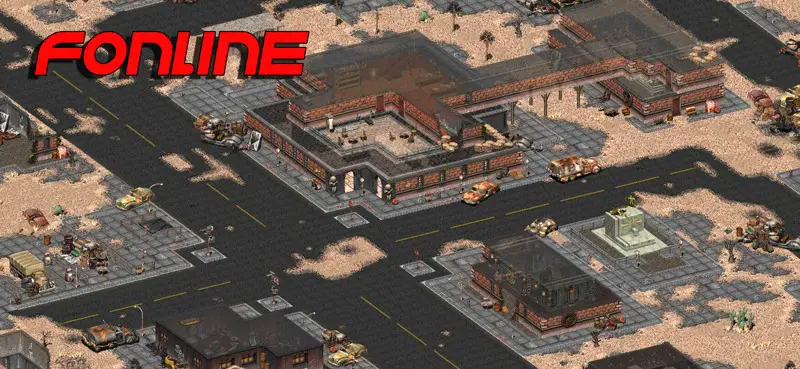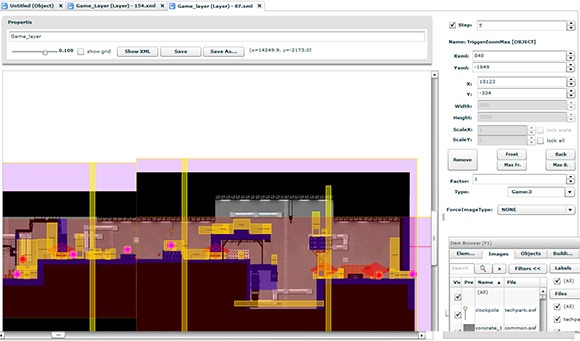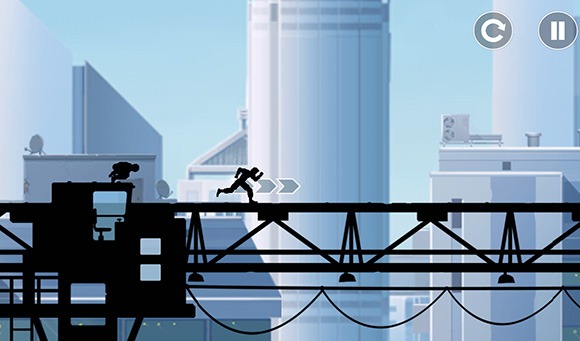Image may be NSFW.
Clik here to view. It wasn’t easy for a kid growing up in Russia to get his hands on video games. But like a lot of kids of my generation, I managed. I think it was either 1996 or 1997 when my parents bought me the Dendi Console as a birthday present. Dendi was an unofficial hardware clone of NES, which was very popular in Russia and other Post-Soviet countries. A couple of years later when computer clubs became popular in Moscow, I made them my second home. I remember a small room with five old and malfunctioning PCs. I had to stand in a queue, consisting of other 8-12 year old boys. We’d wait around sometime for several hours so that we could play Quake, Unreal Tournament, Starcraft and other great old games. We’d sometimes wait in line for several hours and they charged us $1 per hour to play, but it was well worth it. A bit later I finally got my own home PC, and then a couple of years after that I got a local network and internet connection via modem. Then my life in games really took off.
It wasn’t easy for a kid growing up in Russia to get his hands on video games. But like a lot of kids of my generation, I managed. I think it was either 1996 or 1997 when my parents bought me the Dendi Console as a birthday present. Dendi was an unofficial hardware clone of NES, which was very popular in Russia and other Post-Soviet countries. A couple of years later when computer clubs became popular in Moscow, I made them my second home. I remember a small room with five old and malfunctioning PCs. I had to stand in a queue, consisting of other 8-12 year old boys. We’d wait around sometime for several hours so that we could play Quake, Unreal Tournament, Starcraft and other great old games. We’d sometimes wait in line for several hours and they charged us $1 per hour to play, but it was well worth it. A bit later I finally got my own home PC, and then a couple of years after that I got a local network and internet connection via modem. Then my life in games really took off.
Modder
Two things transpired occurred in my second year of high school that led to my career in game development. Around 2003-2005 I was introduced to the world of online games. A graffiti artist at the time, I wasn’t about to go in for WOW or Lineage, both pretty popular in Russia back then. No, instead I got heavily involved with a game called FOnline, an indie project made by one developer. One of my favorite games then as it is to this to this day, Fonline was an MMO based on the Falllout 2 Universe.
Image may be NSFW.
Clik here to view.
Eventually, I joined an online community dedicated to FOnline called Resistance. At this time, I was also exploring the mechanics FOnline in earnest. Unfortunately I found that by taking the gane apart a lot of its magic was lost to me. But I suppose that is often the case with such matters. But regardless I dedicated months to exploring the mechanics of FOnline via constructing optimal builds, defensive and offensive tactics and anything else I could concoct that would make gameplay more engaging. One process led to another and I began brainstorming on how I could make FOnling more interesting and challenging for me and for others. Firstly, it was just thoughts like “What, if…” And that’s when the magic returned.
At about this same time I was deeply into putting the game through its paces, FOnline’s developer had published the SDK (software development kit for uninitiated) that allowed anyone to make his own server, basically a modder like myself could radically alter the game’s rules, balance, even its most fundamental mechanics. You literally could make the game do anything, all one needed was the will, time and know how to get it done.
Image may be NSFW.
Clik here to view.
So, naturally, I set about trying to make my own version of FOnline happen. I and some of my fellow-modders from Resistance decided to make our own server that would host our vision of FOnline recreated down to the nuts and bolts. I wrote the story, described the quest system and started work on level design. From years of doing graffiti art, I’d not only honed my artistic skills but developed my own artistic aesthetic as well. I designed whole towns for the game word from the ground up. These were vast, detailed areas, consisting of a variety of engaging locations all of which fit FOnline’s post-apocalyptic setting like a glove. For a time it seemed like the perfect situation but slowly I began to understand that aside from me and one other guy no one in our group was committed enough to finish the game. We’d constantly hit dead ends. Someone would be bored with the process. Someone else would decide that it was too hard for him or they were just get tired of it. As a result the project has never been released.
|
Level Designer
While Our FOnline project was largely a failure, it was for me, in the long run, a great success because I finally understood what I wanted to do with myself. I could clearly see before me the path of the game designer. I spent nearly every night and most of my free time designing levels. In the day at that time however I was working in the advertising department of a small Moscow bank. My salary wasn’t bad, but I really didn’t enjoy the work. It didn’t seem important and I felt like I really wasn’t affecting anything. I spent about a year there, and while it wasn’t what I wanted to do, I learned a lot of things there that still help me today.
Finally one day I decided to send my resume along with all my level design work to every single game development company I could find in Moscow. Of course nobody wanted to give a job to 21-year old guy with no experience in game development. One day I happened to find an article about Nekki (the video game company where I work now) that said that they hired trainees and that they were looking to hire full-time employees from among them. The ad also stated that there was a good chance that they would actually be hiring a full-time employee after the training was completed. I answered the ad, did an interview and next day I became a level designer trainee at Nekki working on a game called Vector.
From the first day I worked very hard. Whether developing new levels or fixing bugs in other levels, and I’d always stay late whenever the job called on me to do so. And my diligence paid off because every level I created was included in the final game. This has been a huge motivation for me. As I dug deeper into the nuts and bolts of the game, I gradually began to understand that Vector’s gameplay depends mostly on level design. I started to invent new mechanics that could make the game more interesting and right there I was faced with my first significant problem. It became clear to me that there were a number of compelling features (many of which could be introduced via level design)that were impossible to implement because of the many restrictions imposed on the designer either by our game engine, animation system or graphical content. These restrictions forced my brain to invent features within the constraints imposed upon us by said technical elements. I began to look for loopholes and non-standard solutions that could diversify the game without causing bugs. And lo and behold, I found them.
Clik here to view.

After two months working at designing levels, I developed a comprehensive and in-depth understanding of Vector and eventually stopped designing levels and instead began correcting many of the levels created by our other designers. After a time, it didn’t really matter what type of a problem I was faced with, whether graphical, technical or gameplay-related, whatever the issue, I fixed it. Eventually I began writing commentary for other designers. Not because of any one of these work-related tasks in particular but because of all of them, my bosses at Nekki saw it fit to promote me to lead level designer on Vector.
Once I began working in as lead level designer I began to notice a host of problems with both gameplay and development that were largely unrelated to level design. I started to discuss game design and made a series of proposals to my bosses and fellow designers at Nekki, some of which are part of Vector in its current form. I began to explore the game more and more from the inside and began to understand things about the game that I never would have understood when I was designing individual levels. Eventually I made a series of proposals, many of which were adopted and implemented into Vector. And then, I am very proud to say, I was appointed project manager.
|
Project Manager
Once I became project manager I had to work a lot more than I did as a level designer, but it was very interesting and challenging for me. As project manager I was put in charge of all human resources related to the game and its development, and was tasked with developing the optimal project managing scheme. The position of project manager entailed many new responsibilities, as such I often stayed at work after hours. For one, the game had to be split into several different projects: Vector for social networks, Vector for iOS, for Android and then Vector for OUYA and Gamestick. Each of these platforms had their own particlular issues and I often had to solve each one of them by myself. Due to free communication between employees, and because Nekki is thankfully not overburdened by the bureaucracy, I had to put up with in previous jobs, I managed to build a work scheme that was highly functional and comfortable for everyone, including artists, animators, designers, programmers, level designers and technical support. As a result, Vector has been released on all planned platforms and for a while it surpassed the daily income of all other Nekki games.
Clik here to view.

Then we came to a point where the overall work flow at Nekki became very well organized and I was afforded the time to study the intricacies of game design in general. I listened to the lectures of successful game designers, scoured game design forums, read a variety of game design books and played a ton of popular and unpopular mobile games, always making note of the moments that made the game better or worse for me. I studied with great care the technical details of development both those that are necessary for basic functionality as well as those that were likely to prove useful to me and Nekki in the future.
While my experience may be limited when compared to some game developers, I have learned a few important rules along the way that will no doubt prove useful to anyone looking to make a career out of game development, but doesn’t know where or how to start.
1. Engage with your goals! Never tell yourself that you are not competent, or that no one will hire you in the game industry without experience. You have a dream, so stop dreaming and do something! Don’t be afraid to change your life, because it can change for the better. Life is not a dress rehearsal, so get to it.
2. Don’t stop! If you decided to make your dream come true and have made a first step in its direction – don’t rejoice too soon and don’t think that your goal is too easily attainable. Countless times I have had to absorb huge amounts of information to find the solution to the smallest technical problem. If I had stopped – I would still be at my starting point. Stopping breeds boredom, and boredom has no place in the competitive and successful wing of the video game industry.
3. Learn! You should always be learning something new. Self-development with practice is the most important thing for any industry. If you don’t know your industry – you’ll never understand how to be successful in it. If you don’t know the video game industry you will be hard pressed to know how to make the right kind of games; that is, you won’t understand what kind of game can be sold; which kind can be popular and which kind can achieve both and become a hit.
4. Learn from professionals! If professionals work side by side with you – it’s a huge source of free knowledge and it’s a foolish and maddening waste not to take advantage of the opportunity. And remember to be right-sized when you work with professionals whose technical know-how is superior to your own. There’s no shame to be had in asking for someone to clarify a concept when you don’t understand it. It is however a shame to pretend that you understand something when you don’t.
5. Don’t be afraid of criticism! If you can’t take someone else’s criticism and if you can’t criticize yourself – you don’t stand a chance in the video game industry. Criticism helps you to learn from your own mistakes. You have to learn to look at your decisions from the outside. You need to be able to take a few steps back and analyze the way you have approached a problem, and not be afraid to recognize, acknowledge and correct yourself when you are wrong.
6. Don’t run away from the problem! If you have a problem, if you have made a mistake – don’t fall down on the ground and start crying. No, if you have a problem it is a reason in itself to solve it. When the consequences of your decisions affect many and important things – you can see this truth very clearly, but even when they do not, it is vital that you face your problems head on. All the time that you waste complaining about unfairness or incompetent people or looking for a guilty party to blame, is time that would be better spent looking for a solution.
7. Never forget your priorities! If you have a lot of things to do – you have to make a list of priorities. If you spend too much time on the more interesting but less important problems – you will have no time for your main goal and you may never get there. It’s necessary to switch tasks when necessarry, to delegate tasks,to set aside less important tasks in favor of more important ones. This is key, If you prioritize correctly the end result will look like one finished whole, rather than a bunch of very well polished parts.
All of these things are true for any industry, not only for game development. They are quite simple, but they contain some restrictions. Restrictions are one of the most essential incentives for progress. If people were not restricted by their own warm-blooded bodies, they would have never discovered fire.
Do not be afraid and strive for your goals – then someday your work will not only bring you income, but also fun. And last, I would like to wish good luck to new developers: may you find and fulfill your dreams.
The post My Journey to Vector appeared first on Hardcore Droid.